Groundcover perennials - not only have beautiful leaves and flowers, thereby creating in the spring beautiful decorative carpets, but also expanding widely, they do not allow the soil to dry out and the weeds do not allow to develop.
Content
- 1 Use of soil cover
- 2 Tips for the design of ground cover plants on the site
- 3 Sedum or cleansing - perennial soil cover
- 4 Molodilo - sempervivum of the genus Tolstyanov - long-term soil cover
- 5 Saxifrage - hummock as a perennial soil cover
- 6 Carnation - Semi-shrub soil-cover perennial
- 7 Spicy and aromatic herbs - ground cover perennials
- 8 Periwinkle small and large
- 9 Verbeynnik coinage
- 10 Phlox-shaped
- 11 Juniper - ground cover species
Use of soil cover
Since the ground cover plants have roots that grow not in depth, but in width - they are able to quickly create a beautiful natural carpet.
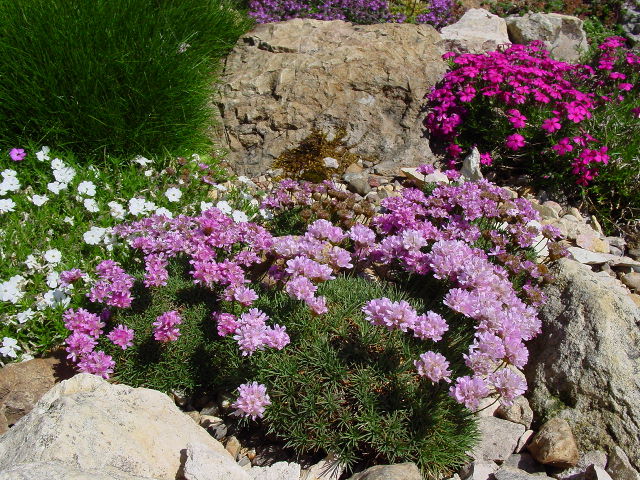
First of all, ground-cover perennials began to be planted in the memorial places of the dead, when creating memorials, as well as on the graves of deceased close relatives.
Ground cover plants themselves can be in the form of perennials, lianas, ornamental grass, and bulbous plants.
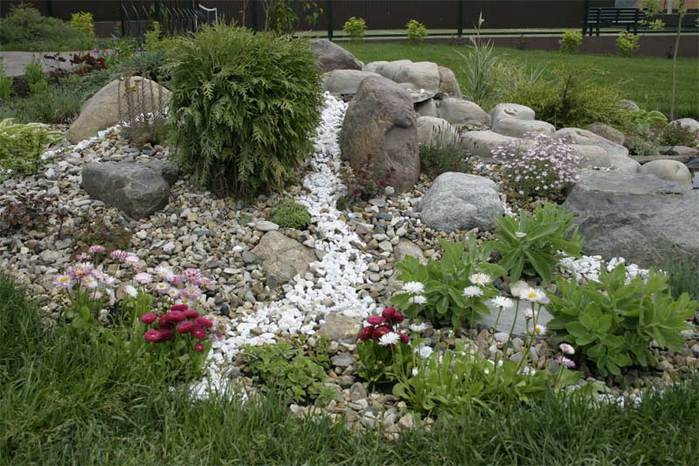
Taking into account the decorativeness of undersized plants, miniature compositions are created, a beautiful background for the alpine hill, with the design of paths and rockeries.
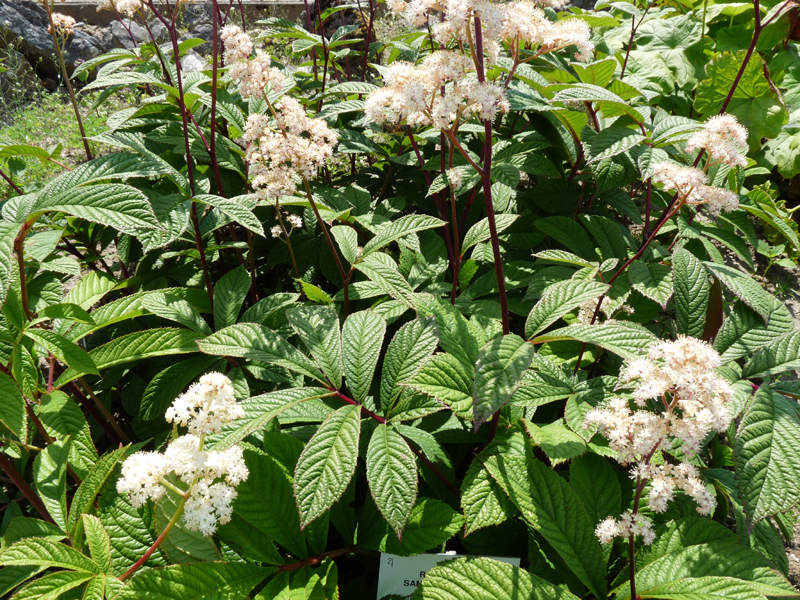
In larger open spaces, larger plants, such as rogiersia, are used.
If the plots are small, they plant cloves, cleansers, saxifrage, gorillas, etc.
Tips for the design of ground cover plants on the site
To miniature plants are not lost on the background of the garden:
-Multi-year old ground cover plants arrange in groups, creating a composition take into account the contrast of the shape and color of the leaves and inflorescences;

-if there is one kind of soil-cookers - drop them on the perimeter of the flowerbed to the fore or create a large carpet on a flat surface;
- When planting, leave a place between the plants, as the ground cover grows rapidly, and when combined, a picturesque live carpet will be created;
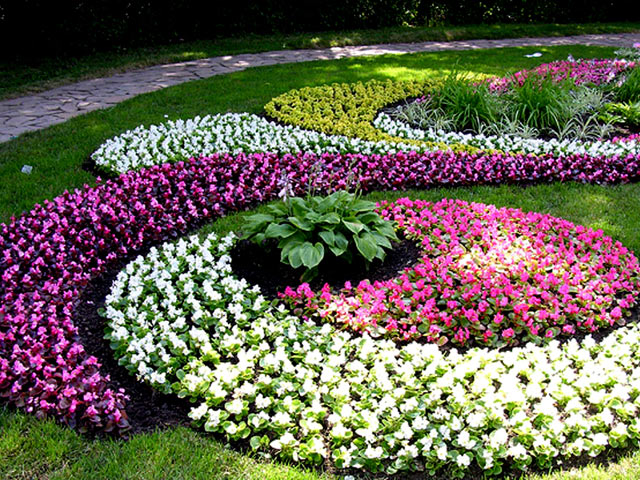
Every spring, the soil under the plants must be covered and weeded;
- As far as fading, remove dried leaves, shoots and flowers;
- Feed the plants in spring, taking into account the condition of the soil cover after the winter, if the plants look good - you can not feed at all, as they are not whimsical by themselves.
Sedum or cleansing - perennial soil cover
All the cleanings are not whimsical, they are great for creating an alpine slide, for a well drained and dry soil.
Blossoms very abundantly, the leaves themselves have high decorative, and the flowering sedum is not for nothing in the people nicknamed the rug.
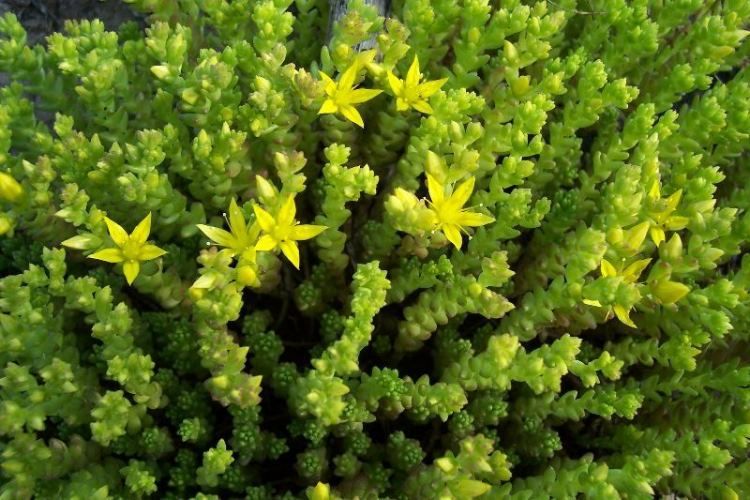
In addition to the low-growing sedum, there is a semi-shrub sedum with pink or crimson flowers.
Semi-shrub sedum looks great in the center of the flowerbed, on the lawn, on the beautiful vases, etc.
Molodilo - sempervivum of the genus Tolstyanov - long-term soil cover
Inflorescence molodilo consists of a beautiful rosette of dense leaves, so the people call a stone rose.
This soil cover has many varieties, has a different shape and color of the leaves.
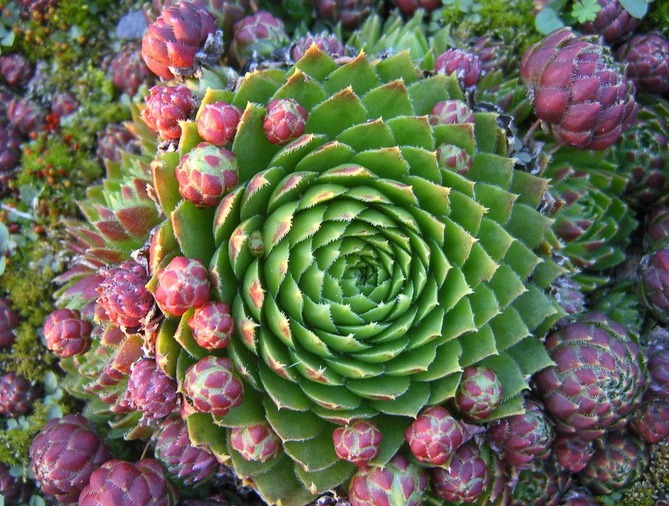
Blossoms a long period from June to August, beautiful not only flowers but also leaves.
Lilac or pink flowers look bright in any part of the garden.
Very often planted in flowerpots near monuments.
Saxifrage - hummock as a perennial soil cover
There are many varieties of gazelles, these plants are capable of creating beautiful picturesque mossy hummocks with small flowers and if you plant them among a group of stones, you will not lose it.
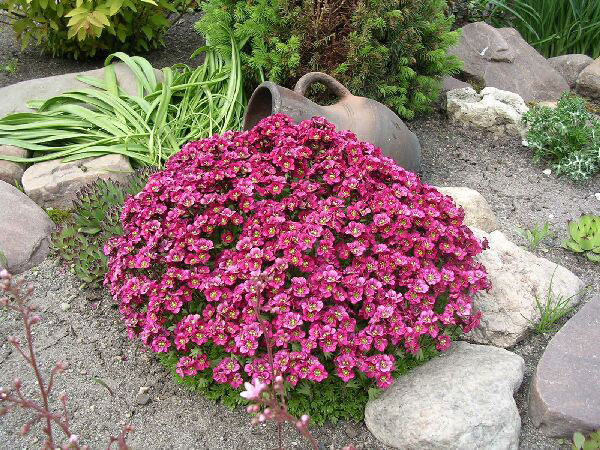
Such widespread types of gazelle were widely spread:
coliaris, saxifrages-young, cotaledon or tusk, saxifrages luxuriant and turfy mossy.
Carnation - Semi-shrub soil-cover perennial
Among the carnations, the first place is occupied by the pinnate clove, the petals intertwine and create a thin cobweb.
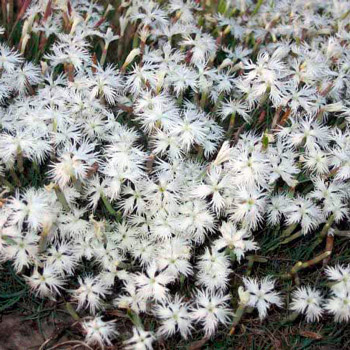
Flowers of carnations are semi-double and double, white pink or red.
Carnations like high humidity and sufficient lighting, often used in rock gardens.
Spicy and aromatic herbs - ground cover perennials
Such perennials are able to decorate and fill the scent of your garden and will allow you to prepare a delicious wholesome tea.
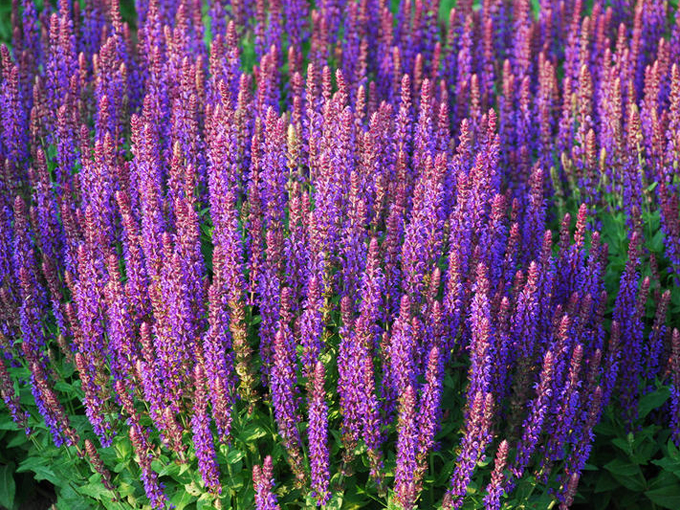
Almost all herbs are beautifully blossomed, have their own charm and decorativeness, they are planted on the flower bed and along the paths.
It is very beautiful in the group planting of sage with its purple flower stalks in the form of arrows.
Periwinkle small and large
The periwinkle itself is an unpretentious plant that can grow for a long time in one place, creates a carpet of gently blue flowers and beautiful leaves.
Modern flower growers widely use varieties of vinca with pink and shades of red flowers.
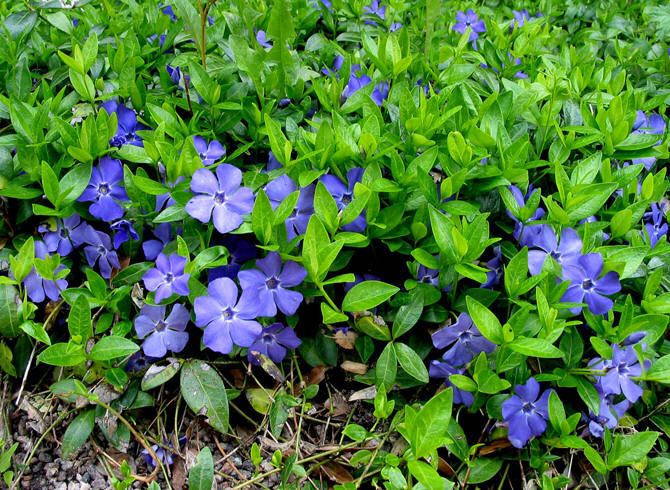
It grows well in the shade, unpretentious to the soil.
In addition to the vinca small, there is a periwinkle large in the form of a half-shrub, forming larger flowers, up to 5 cm in diameter.
Verbeynnik coinage
Verbeynik is called meadow tea, a rapidly growing ground cover plant, blossoms with yellow flowers.
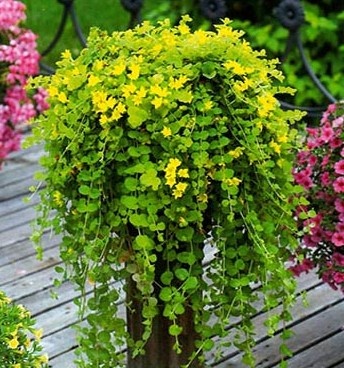
If you plant in a vase get an ampel plant.
Phlox-shaped
One of the most beautiful and favorite in Japan ground canopies.
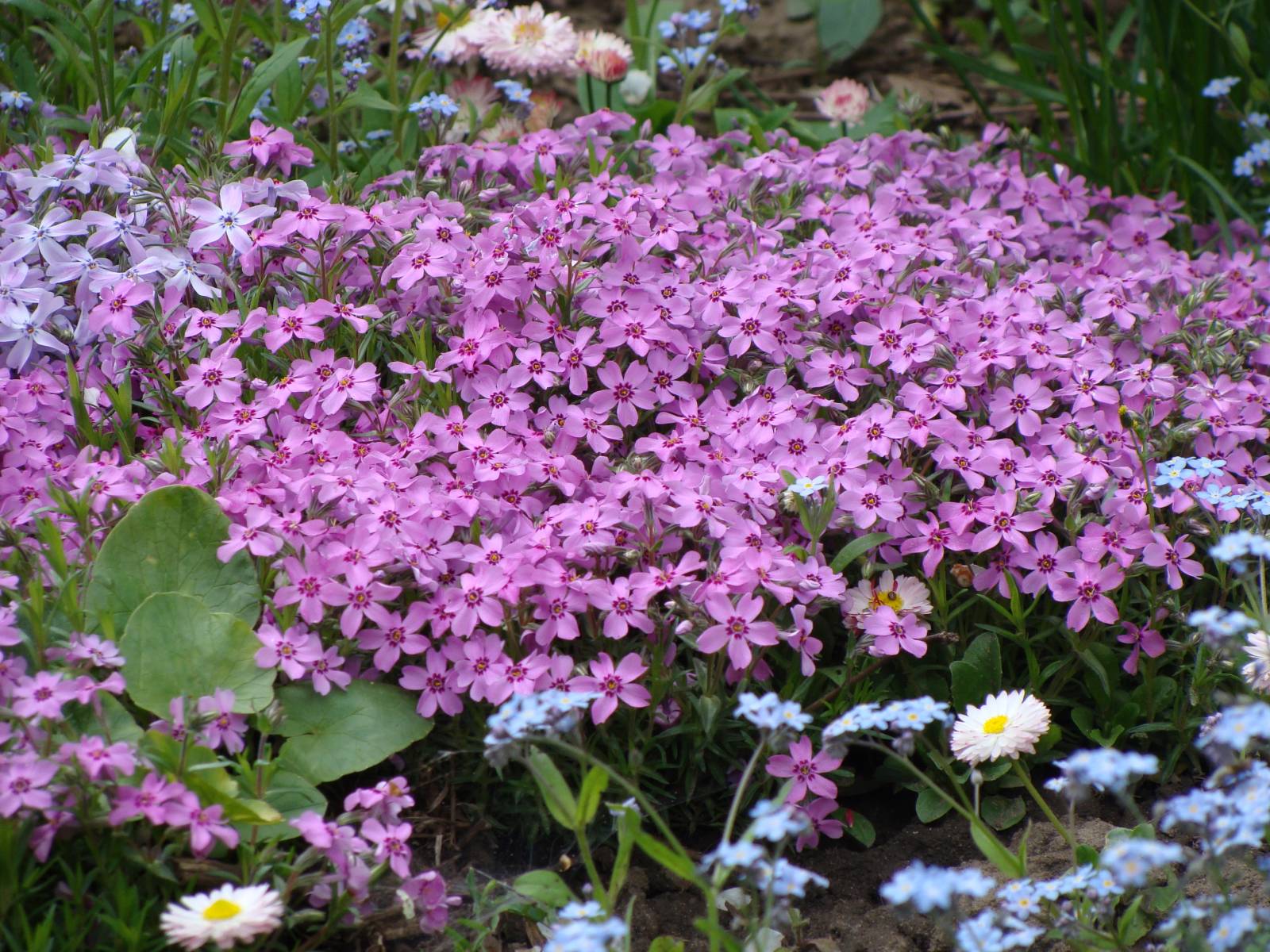
Varieties of crimson, blue and white colors can create very bright pictures in the garden.
Phlox blooms in the second half of May and blossoms for about a month.
Juniper - ground cover species
Juniper is a coniferous plant, it has a large number of species.

Gardeners brought creeping and stunted varieties of this plant - look great on the flower beds, on the lawn, in the neighborhood with thuja and other conifers.



















